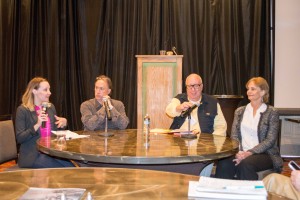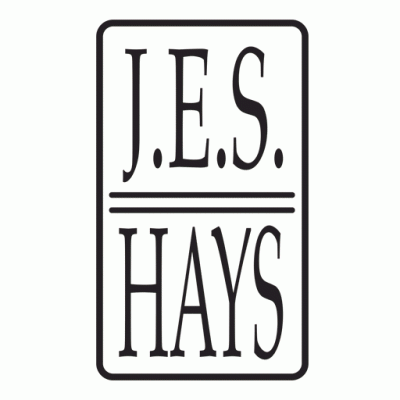Tips on Writing a Book that Sells – Anne Hillerman, Hampton Sides, Paul Rhetts, Katy Hershberger
What is a “promotable” author?
Hampton: Writers want people to buy their books – the reading part is secondary.
Anne: People are fascinated with authors. They love having contact with someone who has written a book. Part of being an author is making the time to go out and talk to people.
Katy: It’s about enthusiasm. Be up for doing those tours and signings.
What else can authors do to promote themselves?
Anne: I think you really have to have a good website. People love videos, too. Facebook has been a really good marketing tool, and I try to answer my emails – you can’t really tell if those things translate into sales, but it makes me feel good.
Hampton: I was told to interview myself. Try to anticipate the sorts of questions you’ll be asked during an interview. It’s a cheat sheet. Also, come up with some sort of individual book tour based on your audience. Take control and go where your readers are.
Paul: I think authors need to have a long-term view. It’s a long-term relationship with your readers and your publishers. It’s not a matter of money. One of the things authors can do for themselves is to build a list of potential readers as soon as they start writing. Keep adding to it as you go along. Facebook is a great way to keep your name and book in front of the audience.
Katy: publishers are looking for authors who think of this as a career.

Is success really 50% writing and 50% promotion?
Paul: speaking as a publisher, it’s more 5% writing and 95% promotion!
Hampton: Promotion is really important, but you have to do it smartly and in your own individual style. I think of myself as the biggest champion of my story.
Anne: After my first book tour, I thought I’d relax and get started on the next book. Then, there’s an email from a book club or a library … you’re always promoting. Promotion is kind of fun. And people give you ideas … not always the ones you want…
Hampton: Don’t promote your book before it’s written! Writing is like a pressure cooker – a lot of writers talk their book out. If you let out the steam gradually, it never builds up the pressure needed to write the book.
Paul. The “Field of Dreams” Theory of Writing does not work! Promotion is everything you do beyond the keyboard. You can write the best book ever, but if nobody sees it, does it really exist?
What do you wish you’d known about publishing before you got into it?
Hampton: When I was in my twenties, I had a lot of affectations … Southern writers drink a certain type of bourbon, smoke a certain type of pipe, etc. I went through a five year period of trying on clothes. You’ve got to be original and find your own voice. Don’t be over-impressed by any tradition you think you’re part of.
Anne: I was surprised by how many more people paid attention to me once I started writing fiction instead of nonfiction. I was amazed at the tsunami of build-up interest that Dad’s work had generated. I think it kind of freaked me out.
Paul: I wrote my first book in 1972. I thought my job was done the minute the manuscript was turned into a book. Boy, did I not understand anything – distribution, returns, bookstores, shelf life, turnover – the whole thing! I wish I’d known more about the trade side, the business side of writing.
What final piece of advice would you give?
Anne: I would say, basically, that people out there are your friends. Everyone wants you to succeed. I had never done much public speaking before, and that’s one thing you’re going to need if you’re going to promote your book. The more you do it, the easier it becomes.
Hampton: It’s communication coming full circle – it’s more like me getting feedback and completing the loop, incorporating that into the larger picture of my whole career. I get to know my audience … they’re seventy-plus-year-old women looking for masculine-sounding books to give their husbands for Christmas or birthdays!
Paul: There are three ways of having success in writing – you can buy success, you can get lucky, or (and this is really the only one that counts) you can create a compelling product. Be the best storyteller you can be. Hone your craft. And practice, practice, practice your pitch! Learn how to tell your story in a capsule – a fumbled pitch is one of the death knells.
Katy: Things you can do before you have an agent or publisher – connect with other writers, libraries, etc. Have a website and an online presence.
Paul: Being able to tell an agent or publisher “I’ve got a plan” … you’ve got me hooked!
